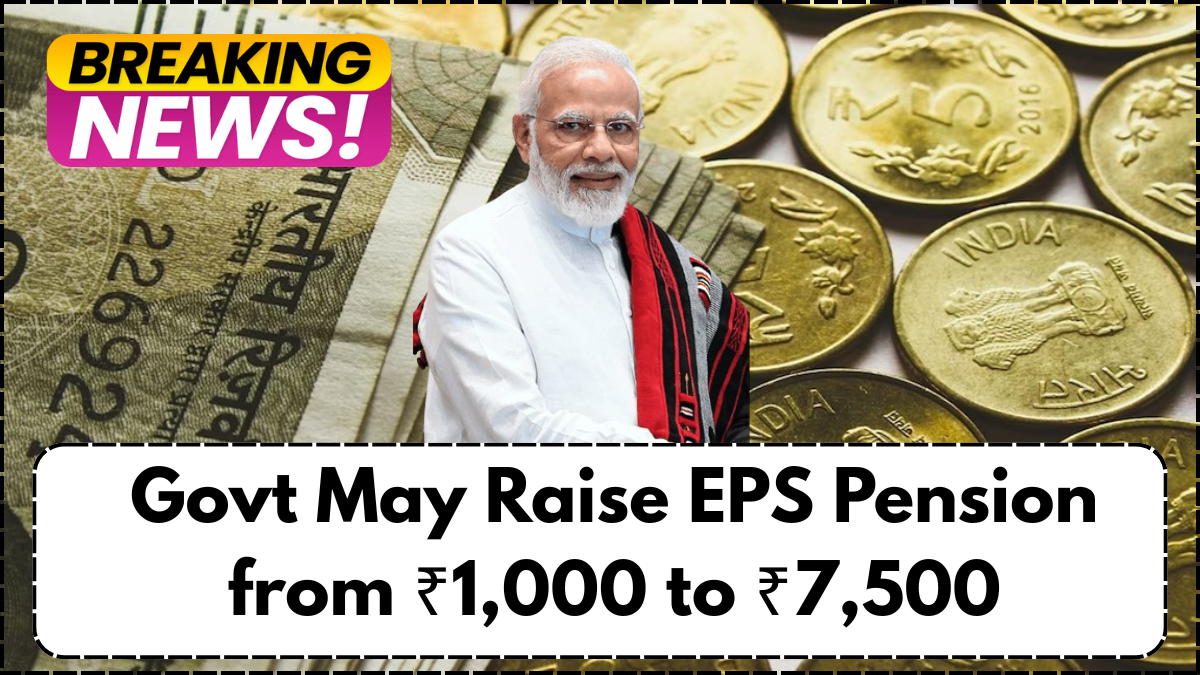The Employees’ Pension Scheme (EPS), initiated in 1995 and often referred to as EPS-95, was introduced to ensure post-retirement financial security for employees. Managed by the Employees’ Provident Fund Organisation (EPFO), the scheme currently provides a minimum monthly pension of Rs 1,000 for members who have contributed for at least 10 years. This threshold was set in 2014, and despite a steep rise in living costs over the past decade, no revision has been implemented.

Rising Demand for Pension Revision
For years, pensioners and trade unions have been pressing for an increase in the minimum pension. They argue that Rs 1,000 is grossly inadequate given the surging inflation and rising healthcare and daily living expenses. In fact, unions have consistently proposed a revised minimum pension of Rs 7,500 per month, along with dearness allowance (DA) benefits to cushion the impact of inflation.
Third-Party Evaluation to Assess EPS Viability
In a significant move, a parliamentary standing committee led by BJP MP Basavaraj Bommai has urged the Ministry of Labour and Employment to carry out a third-party evaluation of the EPS. This is the first time in the scheme’s 30-year history that an external assessment is being undertaken. The committee has recommended that this review be completed by the end of 2025 to expedite policy changes.
The ministry has already initiated the process by issuing a Request for Proposal (RFP) for appointing independent experts to conduct the evaluation. This exercise will analyze the current structure of EPS, its financial sustainability, and the feasibility of increasing the pension payout.
Cost of Living vs. Pension Realities
The panel emphasized that while inflation has surged since 2014, the pension amount has remained static. The report highlights that essential costs, including housing, food, and medical care, have escalated sharply, leaving pensioners with minimal financial support. A revision, therefore, is not just a demand but a necessity.
Government Response and Budget Discussions
In 2020, the Labour Ministry proposed raising the minimum pension to Rs 2,000 and sent the recommendation to the Finance Ministry. However, it was not approved. The issue re-emerged during discussions for the 2024-25 Budget, following a meeting between EPS-95 pensioners and Finance Minister Nirmala Sitharaman. The delegation, under the EPS-95 National Agitation Committee, reiterated their demand for a Rs 7,500 pension. While the Finance Minister assured the group their concerns would be reviewed, no formal announcement has been made yet.
Current Status and Next Steps
As of May 2025, the government has not yet implemented any changes to the pension amount. However, with mounting pressure from unions and the parliamentary panel’s recommendations, a policy shift seems increasingly likely. The third-party evaluation, once concluded, will play a critical role in shaping the future of EPS payouts.
EPS Pension Demands vs. Current Provisions
| Criteria | Current Provision | Proposed by Unions | Remarks |
|---|---|---|---|
| Minimum Monthly Pension | Rs 1,000 | Rs 7,500 | Last revised in 2014 |
| DA Benefit | Not Provided | Demanded | To offset inflation |
| Years of Service Required | 10 years | No change proposed | Mandatory for eligibility |
| Third-party Review | Not done till 2025 | Initiated | First time since 1995 |
Conclusion
The Employees’ Pension Scheme is long overdue for a comprehensive overhaul. With real-world costs climbing sharply and pensioners struggling to make ends meet, revisiting the Rs 1,000 baseline is essential. The government’s willingness to commission a third-party evaluation signals a shift towards more transparent and evidence-based policymaking. If the findings support the unions’ demands, India could see a long-awaited revision to EPS pensions in the near future.
FAQs
What is the Employees’ Pension Scheme (EPS)?
EPS is a government-backed retirement scheme launched in 1995 to provide monthly pensions to employees after retirement, managed by the EPFO.
What is the current minimum pension under EPS?
As of May 2025, the minimum monthly pension is Rs 1,000, unchanged since it was set in 2014.
Why are unions demanding Rs 7,500 as the new pension amount?
Unions argue that Rs 1,000 is insufficient due to inflation and rising living costs. They believe Rs 7,500 is a more realistic minimum pension.
Has the government responded to the demand?
The Labour Ministry proposed Rs 2,000 in 2020, which was rejected. Discussions are ongoing, and a third-party review is underway.
When will the third-party evaluation be completed?
The parliamentary panel recommends completing the evaluation by the end of 2025.
For More Information Click Here



